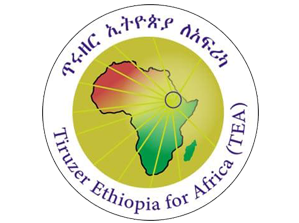Background to the TARGET programme
The overall purpose of the Technical Assistance to Reinforce General Education Quality Improvement Program for Equity (TARGET), Equitable School Improvement Fund (ESIF) programme is to support GEQIP-E and the general education sector more broadly, to improve both student learning and equity. GEQIP-E focuses on improving school and system performance through direct interventions and relevant system strengthening. TARGET will support GEQIP-E to re-focus the system to improve learning outcomes through four integrated task areas:
Task 1. Performance-Based Delivery: strengthening delivery capacity through embedded delivery approaches across the system.
Task 2: School leadership training and capacity development: reforming the school leadership training programme for school principals to put teaching and learning at the heart of school leadership and ensuring that special attention is paid to gender and inclusion.
Task 3: Enhanced school leadership to improve school performance: supporting existing school leaders through in-service continuing professional development (CPD) to strengthen instructional leadership, accountability, and grant use, especially in the worst-performing schools, and to develop model interventions to identify what works in addressing the barriers faced by the most marginalized groups in the four emerging regions.
Task 4: Research, monitoring and evaluation process: improving systems for monitoring, evaluation, research, and analysis (MERA) to achieve a system-wide culture of learning.
The project Outcomes;
- Enhanced knowledge, skill and practices of school leaders on community engagement, teacher performance and inclusive instruction /pedagogical/ methods and instructional leadership
- Performance of teachers improved and thereby literacy and numeracy skills enhanced through utilizing responsive & inclusive learning and teaching processes across the targeted school systems
- Enhanced engagement of the community in level 1 (poorly performing) schools to boost school improvement.
Beneficiaries;
- 44 primary schools and students experiencing improved gender clubs
- 44 primary schools with new mechanisms in place to improve reporting on SRGBV
- 15 primary schools experiencing improved gender-sensitive sanitation facilities
- 4 woredas participating in capacity building interventions that combat harmful social norms
- 24,549 pastoralist and agro pastoralist girls supported Sanitary Pads.
In General the performance of students mainly those marginalized girls, vulnerable children and those in remote pastoral areas improved (by 25% from the baseline) in the targeted schools through creating safe school environment, providing capacity building training and establishing/strengthening Inclusive Clubs, GCs and GEACs.

TEA Response and Impact
TEA’s strategy supports adolescent girls’ empowerment by providing knowledge and skills which are relevant for girls and boys, strengthening school gender clubs and School Safeguarding policy practices to end school-related gender-based violence, improving primary school curriculum to ensure it is gender-sensitive, and actively engaging communities to support the education of girls. TEA strengthens communication for Development (C4D) interventions to address harmful social norms, support girls’ progression in school, and contribute to ending child marriage. Support is given to ensure gender-appropriate WASH facilities in primary schools and gender equity is incorporated into all of TEA’s education programming. The programme is implemented with the financial support from the Foreign, Commonwealth & Development Office (FCDO) through Education Development Trust (EDT) in close partnership with the Ministry of Education and Regional Education Bureaus and other development partners. TEA is using its range of experience, knowledge, and influence to leverage larger investments and bring a greater impact to improving the quality, efficiency and effectiveness of education for girls in Ethiopia.
